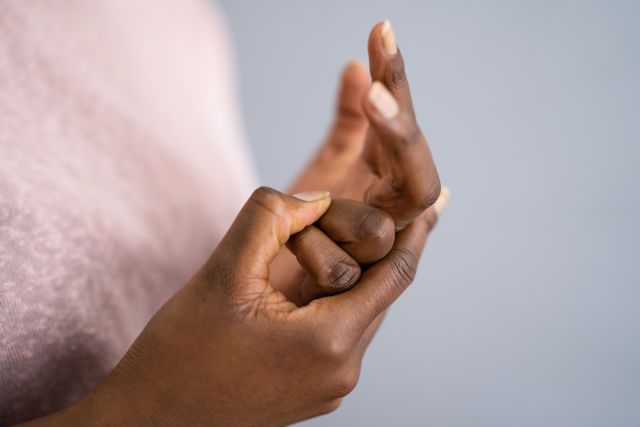Simply put, cracking your knuckles feels good. It loosens up your knuckles and you might experience increased joint mobility in the few minutes after cracking. Some people who habitually crack their knuckles might do it as a nervous twitch, or as a response to stress, says Jeremy Kinder, MD of Presbyterian/St. Luke's Medical Center in Denver, Colorado.
But does cracking your knuckles cause osteoarthritis—the wear-and-tear type of arthritis?
Osteoarthritis occurs when the tissue located at the ends of bones begins to wear down. It’s the most common type of arthritis, affecting about 32.5 million American adults. As you age, your risk of osteoarthritis increases. The wear-and-tear arthritis causes symptoms like stiffness, especially first thing in the morning, as well as pain and swelling.
There’s no one cause of osteoarthritis, yet many people assume that knuckle cracking can contribute to the joint disease.
Snap, crackle, pop: What happens when you crack your knuckles
A fluid-filled capsule that acts as a lubricant and nutrient supplier for surrounding bone surfaces covers your knuckles. Different gases are dissolved in this fluid. When you crack your knuckles, you’re stretching the capsule and lowering the pressure inside the joint. This produces a sort of vacuum that’s filled with gas that would have been dissolved in the fluid. What’s created is a type of bubble, which bursts—creating that loud popping sound that’s so satisfying to hear after a good knuckle crack.
The truth behind the myth
There’s no definitive evidence to show that cracking your knuckles causes arthritis, says Dr. Kinder.
The bottom line: Cracking your knuckles shouldn’t influence the health of your joints, says Dr. Kinder.






